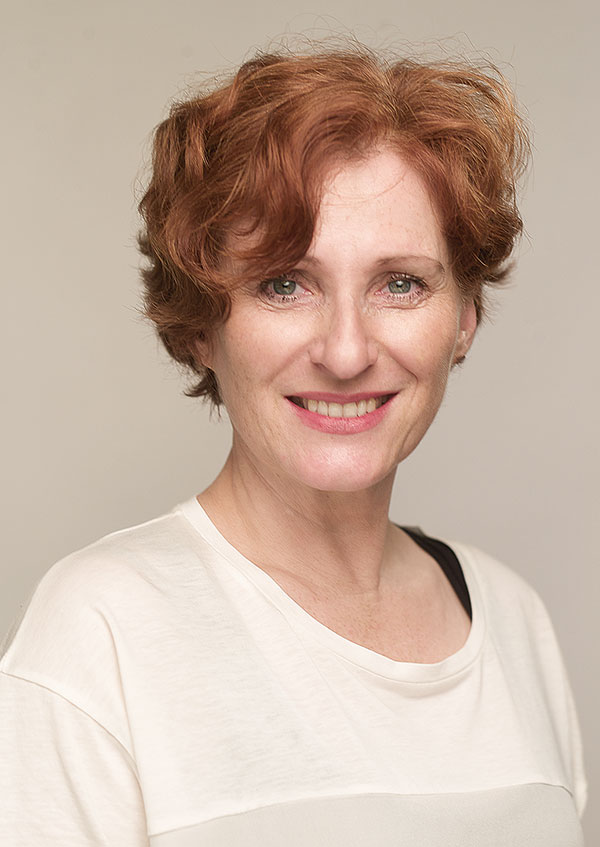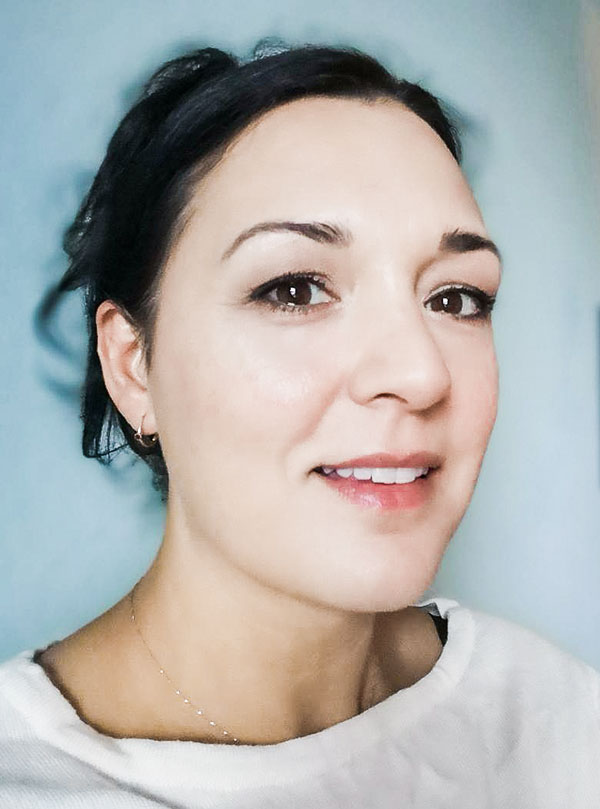When you study to be an actor, the nuts and bolts of acting itself are the main focus—but even just getting invited to auditions after graduation in order to demonstrate your skills and get cast in roles also requires some know-how. This is why audition training provided by casting directors active both in Austria and internationally is an important component of the Max Reinhardt Seminar’s acting programme. Rita Waszilovics (who teaches “Einführung in die Filmarbeit / Casting-Training” [Introduction to Film Work / Audition Training] at the Max Reinhardt Seminar) and casting director Deborah Congia (who visited the MRS for a workshop) spoke with mdw Magazine about their work.

Rita Waszilovics is a casting director with her own casting agency (westendcasting in Vienna’s 15th district), and she casts actors for movie and TV productions. The feature film Der Boden unter den Füßen by former Film Academy student Marie Kreutzer, which was cast by Waszilovics, was screened in competition this year at the 69th Berlinale and was the opening film of Diagonale 2019.
As part of the Max Reinhardt Seminar’s film-related training, which is now being expanded on a continual basis, Waszilovics prepares students to audition for film roles. In the process, she also provides them with knowledge about how film work is done and what casting directors actually do. Audition training aims to simulate a real audition as closely as possible. And the goal at an audition, of course, is to be remembered by the casting director. “It’s about the actors’ visibility and uniqueness,” says Waszilovics. In class, the students learn strategies including how to present themselves in a concise manner using what’s known as an “about me” video. Brief presentations like these serve casting directors as important tools with which to get a general idea of actors’ personalities. “With a film, I don’t want to end up thinking that the actor played their role well. I want to think is: this actor embodied a human being who touched me. And doing that takes a lot of personality,” Waszilovics asserts. In her audition training work, she assigns students individual scenes—which she’s fond of taking from films that she’s cast. Each scene is prepared by two students, who then work on it with her. The main point here is to develop the scenes and figure out the different ways in which the actors can realise them. This demonstrates how flexibly and quickly an actor can put an idea into practice. “I like to show directors how things develop as actors work,” explains Waszilovics. After all, auditions aren’t necessarily about playing a scene just like it will be in the movie itself, but rather about providing an impression of one’s range and way of working as an actor in order to reach the intended goal.
Deborah Congia, a casting director from Hamburg, visited the Max Reinhardt Seminar recently for a workshop. She, too, conveyed practical knowledge about how things are after graduation. “It’s important to me that actors learn how casting folks work—and how actors can and must market themselves after graduating, because they won’t all get picked up by agencies right away,” says Congia. Both in her workshop and in the course taught by Rita Waszilovics, the teachers discuss(ed) with students how their application materials, showreels, photos, websites, and presence in talent databases should look in order to be attractive to casting directors. Such workshops also provide insights into film financing and the responsibilities of acting agents in order to provide students with the broadest possible impression of film work.

In the audition training provided at the Max Reinhardt Seminar, equally comprehensive attention is paid to so-called electronic auditions. For electronic auditions, actors are given a scene by the casting director to put on video by themselves. Actors often do so using their own smartphones, with or without a partner to play against. The advantage for actors is that they can shoot their material as often as they need to in order to ultimately send their best work to the casting director. And for casting directors, the advantage of electronic auditions is that they can be had on short notice and also save time insofar as live auditions have to be coordinated with lots of people’s calendars. “You can do electronic auditions anywhere there’s a smartphone and a WiFi connection and then send them around the world. That gives you immense freedom and reach. But electronic auditions will never fully replace live ones, since casting is also about the interpersonal level and personalities in general,” explains Rita Waszilovics. Even so, electronic auditions can help in cases where directors, producers, and/or TV broadcasters have differing opinions about a casting recommendation. “Electronic auditions are a good way to market actors to various decision-makers,” says Deborah Congia. Young actors fresh out of school often don’t yet have showreels that present them in different film roles, but it’s a quick thing to make a video of oneself and send it to a casting director. Naturally, the disadvantage of electronic auditions is that there’s no actual contact with a production’s directorial level. “A live audition isn’t just there to see whether an actor is suitable for the role—it’s also there to see whether the actor feels okay working together with the director. So it’s really an audition for both sides,” stresses Deborah Congia. Even so, she has indeed already cast a project using only electronic auditions (the TV series Jerks, directed by Christian Ulmen).
Casting directors get involved in film projects’ development quite early on. The producer or director sends them the screenplay, and reading that gives them their initial casting ideas, say both casting directors. Depending on the project, they’ll then approach their actors of choice directly and/or organise electronic auditions or live auditions. And finally, they’ll present their casting ideas to the director and the producer. Ultimately, everyone involved has to be convinced, so the process of casting roles is typically broad-based and involves both coordination and consensus-building.
Work as a casting director requires one to enjoy working with and mediating between different people. It’s about bringing the people who are suitable for a project into contact with each other: actors with directors and with producers—and, in television films, with the editorial staff. “I’m a matchmaker with a vision,” remarks Rita Waszilovics with a twinkle in her eye. And Deborah Congia puts it this way: “I view myself as an interface between acting, directing, and production and as a friend both to the actor and to the director and/or producer.”
Thanks to the audition training included in their curriculum, acting students receive practical tips for their self-presentation. And above all, they gain valuable insights with regard to how casting directors work in order to be optimally prepared for life after graduation.

